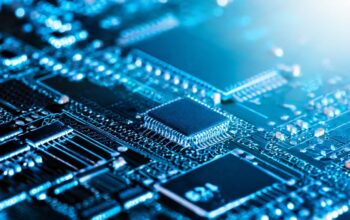Cisco has announced a major step in advancing artificial intelligence infrastructure with the launch of its 51.2T Cisco 8223 router P200 deep-buffer routing silicon, designed specifically to support AI clusters comprising hundreds of thousands of GPUs.
This cutting-edge routing technology enables large-scale AI workloads to operate seamlessly across multiple data centers — a capability known as scale-across networking.
While scale-across solutions focus on interconnecting vast AI clusters, Cisco emphasized that scale-up networking remains essential for ultra-high-bandwidth communication between AI compute nodes.
In alignment with this vision, Cisco has joined the Open Compute Project’s (OCP) Ethernet for Scale-Up Networking (ESUN) initiative as a founding member.
The collaboration, announced at the OCP Global Summit 2025, brings together AI infrastructure operators, hardware vendors, and technology leaders to advance open Ethernet standards that can meet the evolving needs of AI-driven data centers.
The ESUN initiative aims to develop open, standards-based Ethernet switching and framing solutions tailored to scale-up networking — excluding proprietary technologies, non-Ethernet protocols, and host-side stacks.
Its mission is to promote interoperability, reduce latency, and deliver lossless, high-performance networking at massive scale.
Cisco’s participation reinforces its commitment to open collaboration and innovation in AI networking. The company views Ethernet as the foundation of scale-up networks, offering flexibility and performance without vendor lock-in.
By engaging with ESUN and other global standards bodies, Cisco plans to accelerate adoption of Ethernet-based solutions optimized for AI workloads.
As part of its involvement in ESUN, Cisco outlined three key priorities: optimizing open industry standards for Ethernet-based scale-up networking, ensuring interoperability across XPU interfaces and Silicon One-based Ethernet switches, and defining efficient L2/L3 headers for error recovery and low-latency data transmission.
By partnering with the broader ecosystem of hardware and software providers, Cisco and the ESUN community aim to establish a robust foundation for next-generation AI networking — one built on open standards, interoperability, and the scalability required to power the world’s most advanced AI systems.



